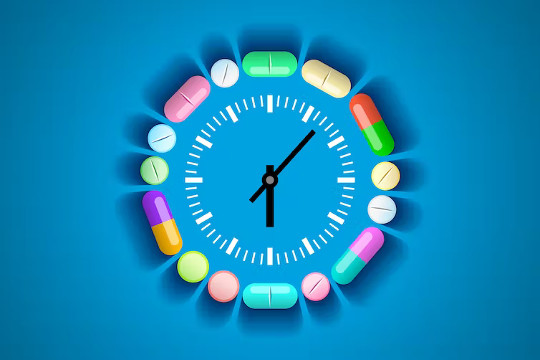 Chronotherapeutic drug delivery aims to maximize treatment effectiveness and minimize side effects. Vaselena/iStock via Getty Images Plus
Chronotherapeutic drug delivery aims to maximize treatment effectiveness and minimize side effects. Vaselena/iStock via Getty Images Plus
All living organisms on Earth are exposed to a 24-hour day-night cycle. This cycle is the reason why people rest during the darkness of night and are active during the light of day. Consequently, all human body functions also follow this daily rhythm, and the timing of behaviors like exercise or food intake can significantly influence your health. For example, eating at night can lead to weight gain over time because while daytime food intake is used for activities, food intake at night leads to increased fat storage because the body expects to be at rest.
When you take your medications is also influenced by your circadian rhythm. Many drug targets in the body follow a 24-hour cycle. This means that the specific proteins a drug is designed to modify can react differently to the medication over the course of a 24-hour time period. Because how the body responds to a medication can differ depending on whether it is taken during the day or at night, it logically follows that taking medications at specific times could help increase their effectiveness and reduce unwanted side effects.
When doctors prescribe medication for people, they rarely consider the best time to take it. There are two main reasons for that oversight. First, many physicians are not aware that some drugs work better during a specific time of the day. And second, most drugs have not been studied for possible different effects during a 24-hour cycle. As such, patients are directed to take most drugs during the morning or evening primarily to ensure compliance.
My lab and I have been studying chronotherapy, or how time of day affects disease development and treatment effectiveness, for many years. In our recently published research, we found that using a particular sedative at night can increase the risk for heart damage.
Get The Latest By Email
Chronotherapeutic drug delivery
The concept of chronotherapy isn’t new. For example, over 50 years ago, researchers found that the cholesterol drug simvastatin is more effective at lowering triglyceride and cholesterol levels when taken at night rather than during the day. This is because the liver enzyme these drugs target is more active at night. As a result, the Food and Drug Administration recommends taking simvastatin in the evening.
Similarly, research in the 1990s showed that taking time of day into account when administering a combination chemotherapy could increase its effectiveness and reduce treatment toxicity for colorectal cancer patients. This is because cancer cells divide at different rates over the course of the day. The rate that the body metabolizes drugs also varies over a 24-hour cycle.
Other examples include the over-the-counter acid reflux medication omeprazole and blood pressure medications that work best when taken before bedtime or in the evening, respectively.
Many factors can affect how well a drug will work for each person.
Taking medications at the wrong time can even cause harm. My colleagues and I wondered whether midazolam, the most common sedative used in surgical procedures worldwide, might interfere with the internal clock that protects the heart at night. Currently, there are no guidelines regarding when midazolam should be administered.
When we analyzed data from 50 medical institutions for the occurrence of heart damage during surgical procedures from 2014 to 2019, we found that taking midazolam during overnight surgeries may increase the odds of heart damage in healthy patients by over threefold.
Timing matters
More research is needed to determine the best times to administer treatments for different diseases. Taking time of day into account might require reformulating some medications that last for more than a 24-hour time period in the body.
As of 2019, the FDA has recommendations for only four of the 50 currently most prescribed medications to be given at a specific time of day. Considering that the top 10 highest-grossing drugs in the U.S. help only between 1 in 25 and 1 in 4 of the people who take them, I believe that taking drug timing into account could help make treatments more effective and help more people worldwide.![]()
About The Author
Tobias Eckle, Professor of Anesthesiology, University of Colorado Anschutz Medical Campus
This article is republished from The Conversation under a Creative Commons license. Read the original article.
books_health







